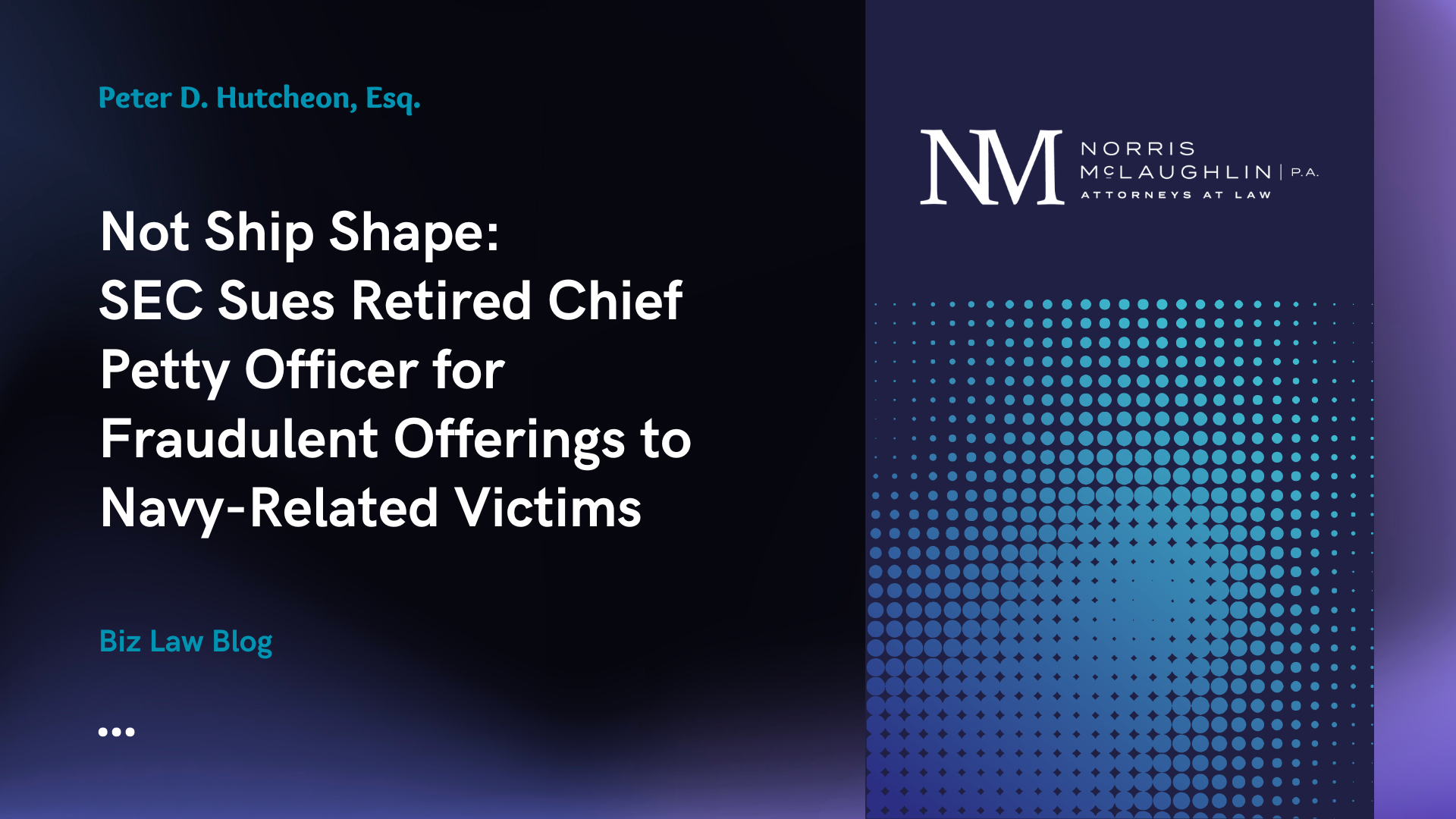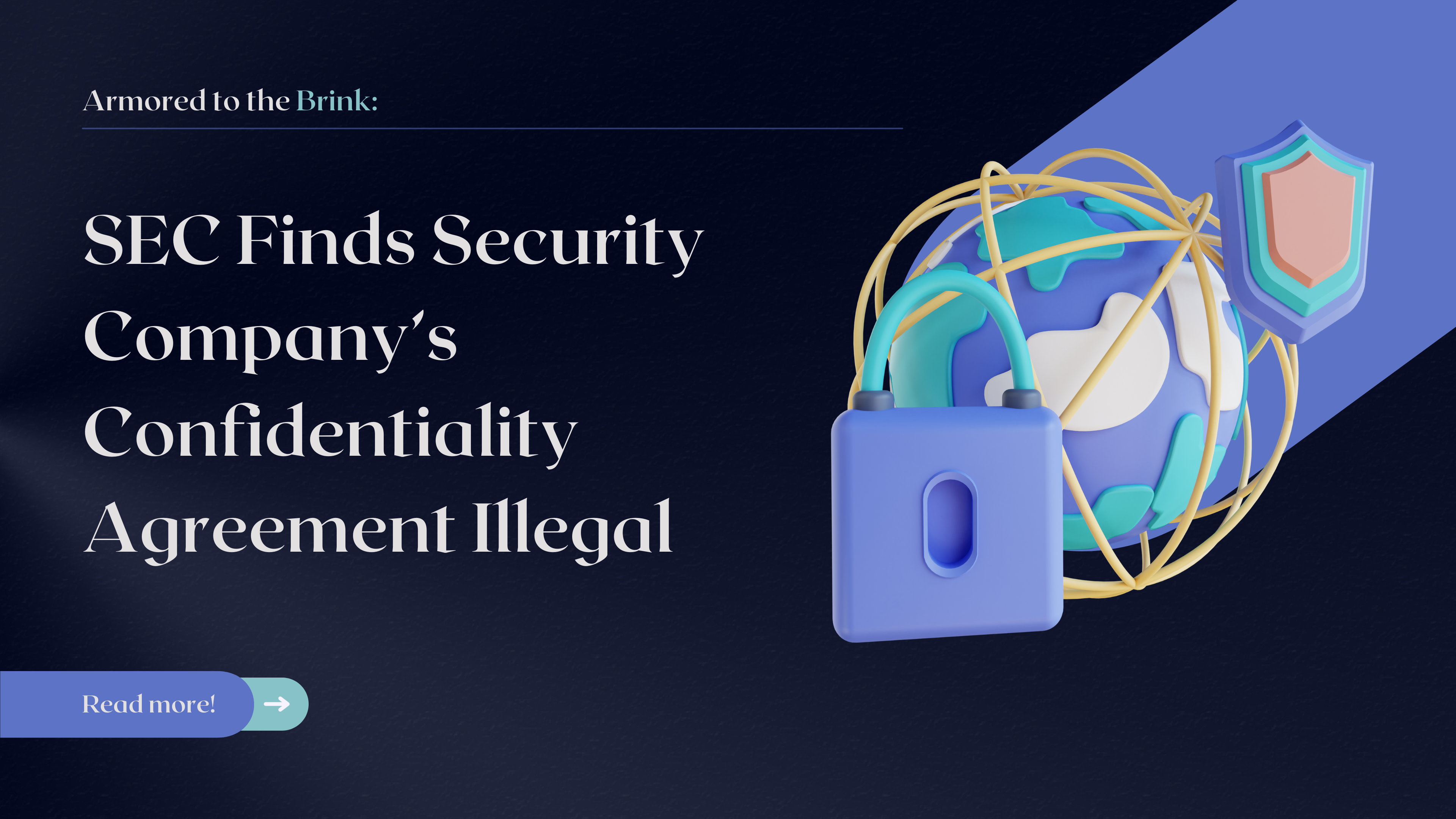Corporations and LLCs: New Federal Beneficial Ownership Disclosure Requires Reporting to FinCEN
On October 22, 2019, the House of Representatives passed the Corporate Transparency Act of 2019 which requires the U.S. Department of the Treasury within one year to issue regulations to “carry out this Act.”
The Act requires each newly formed corporation and each newly formed limited liability company, unless specifically exempt, to file a report with the Financial Crimes Enforcement Network (“FinCEN”) disclosing the beneficial owners of those entities. The purpose of the Act is “to assist law enforcement in detecting, preventive, and punishing terrorism, money laundering, and other misconduct. The Act applies to corporations and LLCs formed under the law of any state or of any Indian Tribe.
Existing corporations and LLCs have two years after final regulations are issued to comply with the Act’s reporting requirements.
Who is a “beneficial owner?”
Under the Act, each of the following is a “beneficial owner:”
- A natural person, who directly or indirectly (through any contract, arrangement, understanding, relationship, or otherwise)
- Exercises substantial control over the entity; or
- Owns 25% or more of the equity; or
- Receives “substantial economic benefits” from the assets of the entity.
What information is required for each “beneficial owner?”
- Full “legal names;” and
- Date of birth; and
- Current residential or business address; and
- “Unique identifying number” from a valid U.S. passport, personal identification card, or a state driver’s license; if a “beneficial owner” does not have a U.S. passport, ID card or state driver’s license, the report must contain the identifying number from a valid foreign passport together with a “legible and credible” copy of the pages of that passport having a photo of the person, date of birth and unique identifying number for such person – all of which must be certified as valid by a person residing in the state or Indian Tribe territory where the entity is formed.
What are the consequences of a failure to comply?
Anyone who knowingly provides false or fraudulent information or any willful failure to provide complete or updated information shall be liable for a civil penalty up to $10,000, additional fines under criminal provisions in the U.S. Code and/or imprisoned up to three years. The Act does provide that civil or criminal penalties shall not apply in the case of negligent non-compliance.
Who is exempt?
- Not a “beneficial owner”
- A minor child
- A nominee, custodian, or agent
- An employee “whose control over or economic benefits” from the entity “derives solely from” employment status
- A person whose interest is through inheritance
- A creditor (unless the credit agreement gives the creditor control)
- Excluded entities
- An entity whose securities are registered with the SEC
- An entity chartered under an interstate compact (e.g., the Port Authority of New York and New Jersey).
- An FDIC depository institution
- A credit union
- A bank holding company
- An SEC-registered broker/dealer
- A securities exchange or clearing agency
- An investment company or an investment advisor registered under either of the 1940 Acts or described in one
- An insurance company
- An entity registered with the CFTC
- A public accounting firm registered with the PCOAB
- A public utility
- A church, charity, or non-profit with tax-exempt status
- A financial market utility designated by the Financial Stability Oversight Council
- An insurance producer
- Certain pooled investment vehicles and
- A business concern with:
- 20 or more full-time employees in the U.S.; and
- $5 million in gross receipts or sales as shown on U.S. tax filings; and
- An operating physical presence at an office in the U.S.
- Any corporation or LLC formed and owned by an excluded entity
When must information be updated?
The entity must file a report annually which report reflects any changes. The Act provides that FinCEN may by regulation require updates within a specified time after a change occurs.
Will the Act, which passed the House, become law?
A companion to the Act was introduced in the Senate on June 26, 2019, with bipartisan sponsorship and is currently in Committee. The financial press reports that there is support for the legislation in the White House. The Senate bill parallels that which passed the House, except that it requires an updated filing within 90 days of any change.
Observations
If this legislation becomes law, it will make the U.S. more congruent with ownership disclosure regimes in Europe and elsewhere. It may also make the use of these entities to purchase real estate, etc. somewhat less useful. The Act has relatively strict rules on who and how persons (other than law enforcement pursuant to a court order) may access the information. It would, in any event, add a significant new layer to the process of business formation.
About Peter D. Hutcheon
The author notes that he served as an Official Observer 2017-2019 of an American Bar Association Task Force on beneficial ownership disclosures involving non-corporate entities, such as LLCs.




